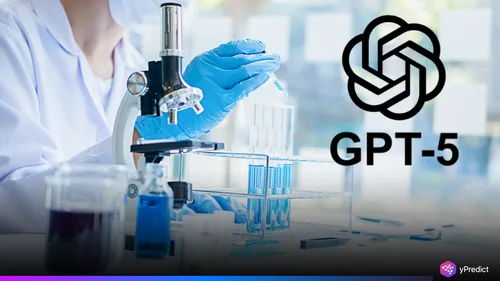
Medical science is moving into a new era. Artificial intelligence has already changed healthcare, but GPT-5 takes this transformation further. Researchers now see how GPT-5 speeds medical research by analyzing complex data, creating insights, and guiding clinical decisions with precision. Traditionally, drug discovery and clinical trials take years due to cost, regulation, and complexity. With GPT-5 tools, researchers can shorten this cycle from years to months.
This shift delivers faster and more accurate results. Speed and accuracy together save lives and reduce expenses. Professor Derya Tarhan recently showed real examples of GPT-5 optimizing workflows that older systems slowed down. His findings prove that AI no longer just supports medical research. GPT-5 now drives breakthroughs and stands as a core force in healthcare innovation.
How GPT-5 Reshapes the Future of Drug Discovery
Drug discovery has always been time and expensive, and the traditional approaches have entailed researchers having to traverse massive datasets, perform simulations, and run needless extended lab tests. GPT-5 flips this over by quickly interpreting biological data, accurately predicting compound candidates, and accurately identifying molecular interactions.
The real advantages of GPT-5 are it is capable of evaluating patterns beyond a human’s vision, allowing pharmaceutical research to eventually consider billions of potential compounds faster. This capability not only reduces the overall burden for pharmaceutical companies by offering obvious potential and faster methods to find safe drugs for patients, but it limits the cost for investors and the time for patients.
In addition to the time advantages, the innovation in drug discovery will not only shorten timelines, but will increase the success of trials by not wasting years in trial-and-error. Instead, researchers can have the greatest potential compound to swiftly, safely, ethically test.
Clinical Trial Transformation with GPT-5
Clinical trials often face delays. Recruiting patients, monitoring progress, and analyzing data demand huge time and resources. GPT-5 now offers smarter ways to match patients with trials, study medical history, and predict outcomes before full testing.
By analyzing patient data, GPT-5 improves selection criteria and ensures trials represent real-world populations. This approach reduces failed trials, lowers costs for sponsors, and speeds up approvals for effective treatments. Pharma companies also use GPT-5 to run simulations, giving a realistic view of treatment success before large-scale trials.
Predictive analytics, combined with real-time patient monitoring, keeps patients safe while delivering faster, more reliable trial results.
Ethical and Regulatory Dimensions of AI in Medicine
While the potential for GPT-5 is highly exciting, ethical concerns must not be overlooked. Most importantly, data privacy, bias, and regulatory approval; predictions by AI must always be validated with rigor before they are contributing to clinical decision-making.
Governments and regulators are working with researchers to create a framework for a safe approach to AI in medicine. Although you might see an objection to what I said above in terms of AI, GPT-5 has its role with oversight and transparency, enabling medical research to be done more quickly and responsibly, with the caveat that innovation is a good thing for everybody.
The Future of AI in Healthcare Research
GPT-5 in medicine isn’t only about quicker output, but better output. Quicker outputs means faster access to life saving treatments for patients. Quicker outcomes for clinical trials means less cost and shortened timelines, and ultimately faster access to treatments for patients.
Hospitals, research institutes, pharmaceutical companies are actively assessing how GPT-5 can be incorporated within everyday workflows. Every new use case builds upon the trust of AI-driven research efforts. This momentum signifies a positive inflection point for advances in health care innovation worldwide.
Final Thoughts
GPT-5 is speeding up medical research through fresh ways for scientists to solve complex problems, from drug discovery to clinical research. The advancements are real and the rewards are apparent, with quicker results, lower costs, and improvements that can save lives. As the research community works toward examining these applications, the future of AI medicine is becoming a reality with a future toward improving health.






